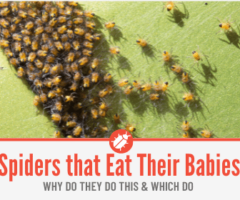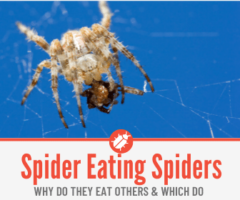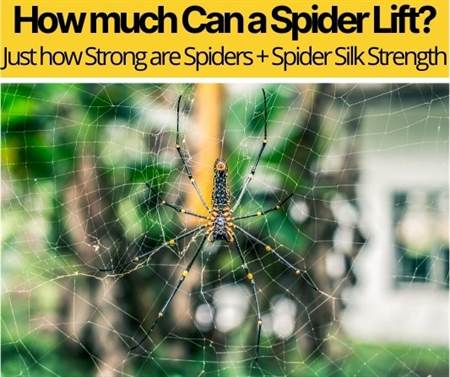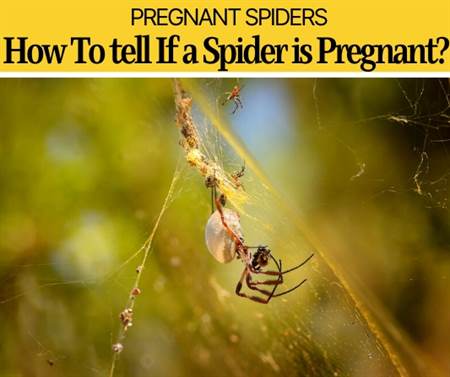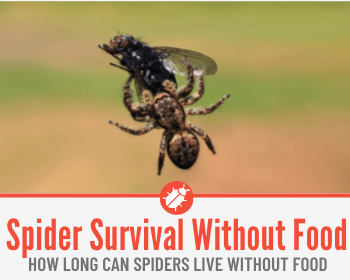 You may notice that lonely house spider in the corner of your bathroom waiting patiently for food, what happens if it never comes? Will the spider starve?
You may notice that lonely house spider in the corner of your bathroom waiting patiently for food, what happens if it never comes? Will the spider starve?
In this article you will Learn:
- How long Can Spiders live for Without Eating and Drinking,
- How are Spiders able to live for so long without Food,
- All about Spider Record-Holders when it comes to Food Scarcity,
- If your Pet spider can Survive your Long vacation without eating.
This article will outline these questions along with a detailed guide on the most common types of spiders located in the USA and approximately how long they can last without food or water.
As well as some helpful tips near the end, to guide you through the process of leaving your pet spider at home for longer periods of time.
How Long Can Spiders Live Without Food
How long they can survive without food or water is totally dependent on their age, specific species, and sex.
An average spider may only last 4-8 weeks without food, and about 3 weeks without water; meaning spiders can go longer without food than they can without water.
Please refer to the list down below to see the specifics of the most common house spiders and if they can survive in your house without eating or drinking:
American House Spider
Most of the time, the American House Spider has a special reserve of food stored away, but if that reserve is used up, they can on average live up to four to eight weeks without food or water.
They could potentially survive longer due to the protein they gain back from eating their web.
Wolf Spider
Adult Wolf spiders can go more than three weeks without food, but when prey is scarce they can adjust their metabolism. They can go about a week without water but more than that is pushing their limits.
Black Widow Spider
Some recorded Black Widow spiders are capable of surviving almost one year in the unavailability of prey due to lowering their metabolism to extremely low rates, but on average the Black Widow can survive serval months without prey, and a few weeks without water.
Brown Recluse Spider
On average, adult brown recluse spiders live for about 1 to 2 years. With the ability to survive as long as 6 months without eating, that’s almost half of their lifespan!
Daddy Longlegs
Daddy longlegs spiders can regulate their metabolism according to the availability of food, resulting in them being able to survive up to 2 months without eating food and even drinking water.
They can easily survive for a long time without food but not without water due to them being susceptible to dehydration.
Related: Spiders with Long legs
Jumping Spider
Adult jumping spiders are known to last about a month without the presence of food, but not longer than a week without water.
On the other hand, baby jumping spiders will last about 5 days without food, and even shorter without water.
How Long Can Baby Spiders Live Without Food Or Water?
Baby spiders or spiderlings can on average survive without eating on average for about 1 month and can survive about 1 week without water.
It is also studied that food limitations in juvenile spiders for certain periods of time can extend the total lifespan of the spider.
How Can Spiders Live So Long Without Food Or Water
An average spider can live for 1 to 2 months without eating food. They have adapted due to uncertainty in the food supply, meaning spiders have evolved their metabolism so it can regulate according to their environment and current situations.
Low metabolic rate and carnivorous diet help spiders to survive without food for a long period.
To overcome and adapt inconsistency in food and water supply, arachnids typically have a relatively low metabolic rate.
This extremely low metabolism rate helps spiders survive for long periods without accessing food and water by conserving their energy.
Spiders, like many other living things, need water to live. It is known that some desert species solely get their water intake from their prey, until eventually the spider dies of dehydration.
While spiders can regulate their metabolism in many unbelievable ways, ultimately they still need moisture to survive.
Most Capable Spiders When it Comes To Food And Water Scarcity
With all spiders being strong-willed, they can last a while without eating and about half the time without needing water.
It is also known that spiders with a high metabolism rate have a decreased survival chance while the spiders with a low metabolic rate have an increased chance due to how much energy they burn.
Here are a few spiders that are most capable when it comes to food scarcity:
Tarantulas:
These larger size spiders have a larger reserve when it comes to food and water, meaning they can go much longer than smaller size spiders. Some tarantulas are known to last up to 2 ½ years without eating, pretty extraordinary!
Web Building Spiders:
When it comes to web-building spiders, like the Cobweb spiders, they have the ability to eat parts of their web to gain back that protein they lost making it. This means they always have a food source available if they need it.
Can My Pet Spider Survive My Long Vacation?
Spiders are very sustaining and can endure a lot, meaning if you go on vacation your pet will be okay, and will enjoy the time with nobody talking all the time, or moving around.
It just comes down to taking the steps to confirm their safety. Here are a few tips you should follow:
1. Feed your pet spider before you leave, but make sure he eats it! Leaving live prey within the tank can endanger the spider.
Preferably herbivore insects, as starving live prey could attack a molting spider.
2. Take a medium mister and spray the sides of the tank to provide droplets of water that the spider can drink from.
Be sure not to spray the ground or directly at the spider. Leave the normal water bowls, but definitely spray the sides to provide more moisture.
3. Be sure to avoid putting your spider near any heat sources or direct sunlight, doing this will allo them to be cool, calm, and collect until you come back home.
If your spiders habitat increases or decreases in temperature it could stress them out, which coud endanger them.
4. Check the security of the cage and any surrounding aspects.
Always be sure to check any locks, rips in screen, or any possibility of danger around the tank. Removing items from a high shelf near the tank could be wise as well.
5. Don’t stress them out! Things like rearranging their tank, or handling them can stress the pet spider out.
If you want to rearrange or clean the spiders tank, plan it about two weeks before you leave.
Most Common Pet Spiders & Their Ability to Survive without Eating
Chilean rose tarantula
It is known that adult Chilean Rose Tarantulas can survive a year or two without feeding on prey. Especially if they are plump to begin with and if they have water available throughout their time.
If the spiders are juvenile or most recently shed, the survival time of not feeding would be majorly downsized.
The Mexican red-knee tarantula
These specific spiders can survive up to two years, like most tarantulas. On average the Mexician Red-Knee Tarantula will go about 5 months without eating, but they will need water consistently.
Wolf Spiders
When going away for a longer time, these guys will be okay for a few weeks without food but will always need water due to increased dehydration.
Jumping spiders
These small spiders can usually go a week or two without food, but not more than 5 days without water.
How Long Does It Take For A Spider To Go Into Starvation?
Now that we know that is it common and typically okay for spiders to go a while without feeding, how long is too long?
While the answer to that question depends mostly on the size and type of spider, as well as the last time they have fed, but it is safe to say a spider can fall into starvation between 30-120+ days.
Larger spiders, such as tranualas will survive much longer due to a larger reserve of food and water within their bodies.
Smaller spiders, like jumping spiders, will have a shorter lifespan if they are starving, they still can adjust their metabolism to push their limits but without food or water within a few weeks, it wont last long.
But of course, you shouldn’t starve them just because they are not very demanding.

